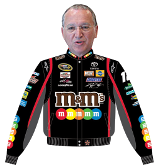
 Summary: The EPO has become more like a rubber-stamper than a patent office -- a fact that worries senior staff who witnessed this gradual and troublesome transition (from quality to raw quantity)
Summary: The EPO has become more like a rubber-stamper than a patent office -- a fact that worries senior staff who witnessed this gradual and troublesome transition (from quality to raw quantity)
THE quality of patents granted by the European Patent Office (EPO) is a growing problem. Battistelli's departure did not improve anything in that regard because António Campinos continues to promote software patents in Europe, just like the new Director of the U.S. Patent and Trademark Office (USPTO), who is trying to work around 35 U.S.C. €§ 101/Alice (more on that in our daily links). They try 'creative' new buzzwords and revived buzzwords, such as "AI". Kate Gaudry, over at Watchtroll in a post dated yesterday, was promoting software patents under the guise of "Artificial Intelligence Industry" (it means algorithms). What next? That's part of a series that uses all sorts of hype waves to rebrand software patents. "CII" is so yesterday.
"This isn't the way to make a solid patent office but a mere pipeline of bad patents."Yesterday we saw patent maximalists from J A Kemp commenting on abstract European Patents (incompatible with the EPC) such as software patents. As we last noted yesterday (with a new example), such patents are still being granted -- soon to be revoked in courts. Such patents must never be granted in the first place, right?
To quote J A Kemp:
Two recent decisions of an EPO Technical Board of Appeal emphasise the need for a proper technical context to be set out in claims to render an abstract idea patentable. The two appeals, by Ab Initio Technology LLC, related to inventions in the field of parallel processing, a field that seems on the face of it highly technical. However, the inventions were claimed as processes for converting computation graphs into a form better adapted for parallel processes but without specifying any steps of performing any processing, parallel or otherwise. At this level of generality the Board considered the inventions to be non-technical as merely mathematical methods. Claims to methods involving actual execution of the converted graphs were not sought, possibly because of lack of good basis in the applications as originally filed, but ought to have saved the day. This emphasises the need for detailed consideration of issues of technicality at the drafting stage.
T 1125/17 (Parallelizing computation graphs/AB INITIO) of 2.4.2019 and T 1337/17 (Sort value indicator/AB INITIO) of 2.4.2019 were heard by Technical Board of Appeal 3.5.06 on the same day, a common practice for related cases, in this instance a parent and divisional respectively. Although various requests in the two cases were refused for lack of clarity or the presence of added matter, the interesting parts of the decisions relate to inventive step of the 5th Auxiliary Request in T 1125/17 and obiter comments in T 1337/17.
[...]
Thus the applicant was forced to rely on the potential for a technical effect if the outputs of the claimed methods were executed. The Board however took the view that the claimed advantage required execution on a specific platform, which was not explicit in the claim, hence the technical effect is not inherent in the program. The Board did however imply that in some cases it might be possible that the "required execution platform was implicit in the program claim" but otherwise the hardware platform necessary to achieve any advantage must be explicit.
The possibility of hardware being implicit in a program claim seems likely to be rare but is consistent with T 0163/85 (Colour television signal) of 14.3.1989 which held that the structure of a television receiver was implicit in a claim to a colour television signal.
Patent EP20100742250 covers the key technology and composition of matter behind Ascension’s market disrupting Sequessome Technology that is used in the unique biolubricating Flexiseq gel. Flexiseq is clinically proven to provide a long-term, entirely drug-free solution to chronic joint pain such as osteoarthritis.
[PDF]. It's from the same publisher that led much of the Benalla investigations (investigative journalism). ⬆